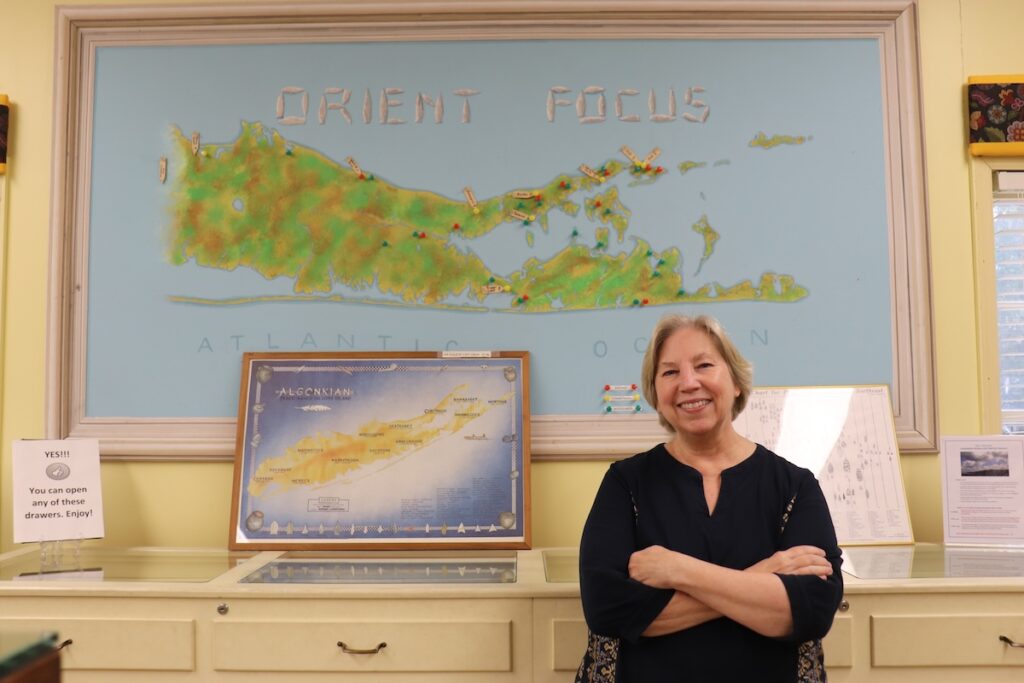Southold Town Board may consider guidelines for supporting struggling aid groups

A funding request made by the Center for Advocacy Support and Transformation at a budget hearing earlier this month generated heated debate at a Town Board work session last Tuesday.
Citing dire financial need among locals, CAST had requested $100,000 in assistance from the town, as its 2022 expenses are projected to exceed its operating budget. CAST usually receives between $5,000 and $9,000 each year in Community Development Block Grant funding, federal money that is funneled through the town. Ms. Demeroto and CAST board president Marc Sokol have previously requested the town use discretionary funding from the town budget to fill gaps in human services, something other local governments do, according to Ms. Demeroto. She also requested direct town support in May, although she did not specify an amount at the time, “because of the growing need we were experiencing at the time due to inflation on the heels of the pandemic.”
At last Tuesday’s Town Board work session, Supervisor Scott Russell argued against granting CAST’s latest request without first establishing an application process. In a follow up email to the Town Board, he said a grant program for aid groups should include a transparent selection process, avoid “perpetuat[ing] duplication of services” and establish clear requirements for applicants.
The program, he added, should also identify how the resources would be used to serve residents, and the town should identify where the funds would come from and which organizations qualify, among other things. Mr. Russell advocated for a roundtable with local aid organizations to start answering these questions and pointed to a similar program offered by East Hampton Town, which has an application deadline in June to give their board “four months to review the applications, not two weeks.”
“CAST requested a substantial amount of money. We cannot undertake a thoughtful review or identify the type of program we want in just two weeks,” the supervisor said. “As mentioned, East Hampton’s program developed over years and they still have four months to review each request each year. Two weeks does not give us enough time to do our due diligence and thoughtful review.”
During the work session, Mr. Russell also argued that CAST serves a client base beyond Southold Town. Since March 2022, the nonprofit has sent a mobile pantry to twice a month to Shelter Island, where it serves 48 families, representing about 5% of CAST’s total client base. CAST does not serve Riverhead Town.
“CAST is a great organization, but there’s a ton of other great organizations that might also want money,” Councilwoman Louisa Evans said at the work session. “I think we need to have a process. I’m not saying that we can’t do this in the future, but there needs to be a really good process on how we’re handing out money that’s open to everybody.”
Councilman Greg Doroski highlighted the “immediate need” faced by CAST. He said it makes sense to establish a process like East Hampton’s, but suggested Southold might be able to help CAST obtain federal funding through the American Rescue Plan, which was established to provide direct aid to Americans suffering as a result of the pandemic. Mr. Doroski pointed out that CAST has a “proven track record in Southold Town” and said he is confident the money would be “well spent.”
“I see this as a problem that we can solve in the short term. I think if we come up with how much we are willing to contribute in the short term, coming up with what the framework looks like is a solvable problem,” Mr. Doroski said. “This is unprecedented, at least in my lifetime, inflation. Unprecedented. The pressure that puts on wages, the pressure that puts on buying power, people are having a really hard time here. And if you look at CAST’s numbers over time, the need is increasing.”
Councilman Brian Mealy highlighted CAST’s wide array of services and high number of clients, and said, “This is in some way a moral imperative to how we handle this problem.”
“We can’t do nothing when there’s a need there. And it’s particularly acute, as was referenced in the inflationary economy. And to me, it’s not just a numbers game. It’s a moral game to say we have to try to help as many people as we can that are in need and I do believe that path is with CAST, based on what we know so far,” Mr. Mealy said.
Councilwoman Sarah Nappa emphasized CAST’s focus on Southold Town residents and its coordination with other aid groups on the North Fork. She pointed out that the town could also access money from its inclusionary zoning fund, which is not taxpayer money but is money from developers who have bought out of inclusionary zoning requirements.
“CAST is serving 30% to 40% of the children in our elementary schools. Thirty to 40% in Mattituck, Southold and Greenport,” Ms. Nappa added. “This is what bothers me, Scott, if this situation was flipped, if we were talking about something else, this would be your number one argument, is the fact that they are headquartered in Southold Town and serving the community of Southold Town … It drives me nuts.”
Councilwoman Jill Doherty said the Town Board needs to set criteria and suggested a reimbursement program to help CAST and similar organizations. The town should approach the funding request with a “business frame of mind,” she said.
“We have to have checks and balances. And I’m not arguing the need. And I’m not arguing the statistics or any of that because I know they’re real. What I am trying to do is make sure this money is spent in a transparent way,” Ms. Doherty said. “This criteria has to be for every organization that comes to us, and we have to agree that it has to be based out of Southold Town.”
Ms. Demeroto emphasized in an email after the Town Board discussion that “the growth in the amount of meals we are providing is a direct result of the increased need in Southold Town due to the pandemic and post-COVID inflation, not because we expanded our service area,” as suggested at one point by Mr. Russell.
“Since November 1, 2021, we have registered 354 new households and we continue to register approximately 30 new Southold Town families per month during this period of 40-year-high inflation. Pre-pandemic, we provided approximately 40,000-45,000 meals per year. In 2020, we provided 198,120 meals. In 2021, we provided 244,410 meals. In 2022, we are on track to provide over 340,000 meals,” she wrote.
Ms. Demeroto added that CAST can provide copies of invoices for purchased food for reimbursement and is willing to “reduce the total amount by 5% to account for the Shelter Island residents we are serving.” She said CAST pays landlords and vendors directly for emergency rent and electric assistance.
“CAST appreciates the Town Board’s recognition of the current critical need for food relief and housing assistance and supports the criteria established by the Town Board on Tuesday for distribution of ARPA funds to nonprofits serving Southold Town residents and providing food relief and emergency assistance (i.e., rent, mortgage, and electric) in 2022. We agree it is important to have an open and transparent process,” she said.
CAST is happy to participate in a roundtable discussion of the process moving forward for accessing town discretionary funds and agrees the town should “establish appropriate and public guidelines and process for such discretionary spending,” Ms. Demeroto said.
She also highlighted a segment from the Town of East Hampton’s 2023 budget outlining nearly $700,000 in total assistance to outside groups such as East End Hospice and Montauk Food Pantry.









